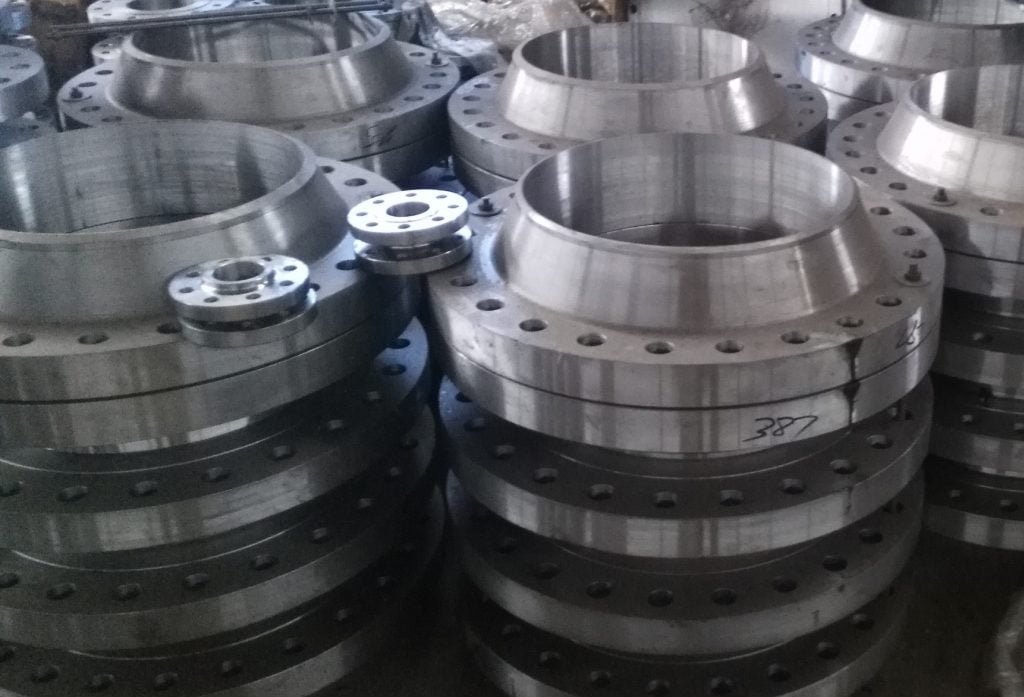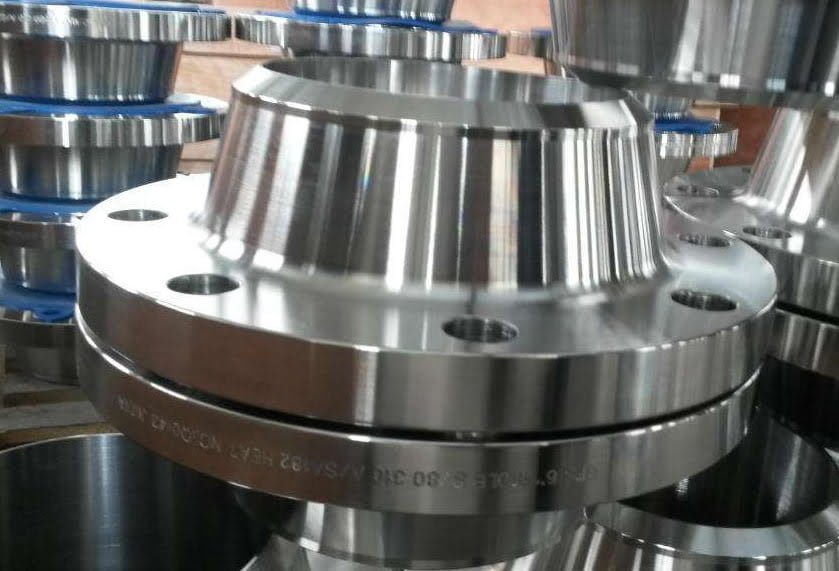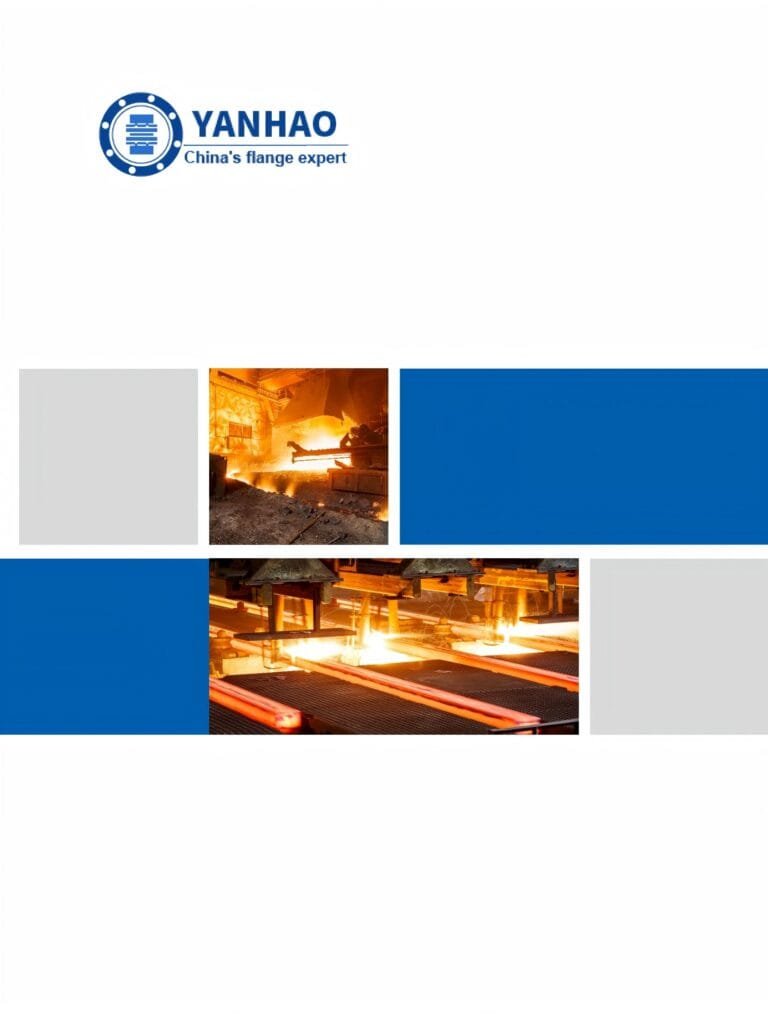How to Prevent Flange Corrosion?
Flange corrosion can lead to significant problems in pipeline systems, compromising their integrity and safety. As a leading provider in the field of pipeline equipment, Yanhao Pipeline Equipment Co. understands the importance of preventing flange corrosion and ensuring the longevity of pipeline systems. In this blog, we will explore effective methods to prevent flange corrosion.

I. Understanding Flange Corrosion
A. Causes and consequences of flange corrosion:
Flange corrosion can be caused by various factors, including:
- Exposure to corrosive substances: If flanges come into contact with corrosive fluids, gases, or chemicals, they are more prone to corrosion. This can occur due to the nature of the transported media or external environmental factors.
- Moisture and humidity: Flanges exposed to high levels of moisture and humidity can be susceptible to corrosion, especially if they lack proper protection or coatings.
- Galvanic corrosion: When dissimilar metals are in contact with each other, an electrochemical reaction called galvanic corrosion can occur. This can lead to accelerated corrosion in the flange.
- Improper installation: Flanges that are not installed correctly or have poor sealing can allow moisture and corrosive substances to penetrate, increasing the risk of corrosion.
The consequences of flange corrosion can be significant:
- Leakage: Corrosion weakens the flange’s structural integrity, leading to the potential for flange leaks. These leaks can result in product loss, environmental damage, and safety hazards.
- Reduced performance: Corrosion build-up on the flange surface can disrupt the proper sealing between flanges, causing reduced performance and efficiency of pipeline systems.
- Increased maintenance costs: Corrosion compromises the reliability of flanges, necessitating frequent repairs or replacements. This translates into higher maintenance costs for pipeline operators.
B. Impact on pipeline integrity and safety:
Flange corrosion poses considerable risks to pipeline integrity and safety. The integrity of pipeline systems relies on the proper functioning of flanges, which connect and seal different sections of the pipeline. When corrosion affects the flanges, it can compromise the entire system.
The safety risks associated with flange corrosion include:
- Leaks and spills: Corroded flanges are more prone to leakage, which can lead to spills of hazardous or flammable substances. These spills pose safety hazards for workers, nearby communities, and the environment.
- Structural failure: Severe corrosion can weaken flanges to the point of structural failure, potentially causing pipeline ruptures or collapses. Such failures can result in significant damage, injuries, and even fatalities.
- Operational disruptions: Flange corrosion can cause unplanned shutdowns, disrupting the normal operation of pipeline systems. These disruptions can lead to financial losses, delayed deliveries, and customer dissatisfaction.
Considering the potential consequences on pipeline integrity and safety, it is crucial to implement effective prevention methods and adhere to industry standards to mitigate the risks associated with flange corrosion.

II. Prevention Methods
To prevent flange corrosion, you can take the following measures:
1. Selecting the right material:
- Stainless steel: This material is commonly chosen for flanges due to its high resistance to corrosion in various environments. Stainless steel contains a significant amount of chromium, which forms a protective oxide layer on the surface, preventing corrosion.
- Corrosion-resistant alloys: Materials like duplex stainless steel, nickel alloys, or titanium alloys offer excellent resistance to corrosion. These alloys are specifically designed to withstand corrosive environments and maintain their integrity over a longer lifespan.
2. Applying protective coatings:
- Epoxy coatings: Epoxy coatings serve as a barrier between the flange and the corrosive substance, preventing direct contact with the metal surface. These coatings provide excellent resistance to chemical corrosion, durability, and adhesion to the flange.
- Polyethylene coatings: Polyethylene coatings are commonly used for buried or exposed pipelines. They possess excellent resistance to moisture, chemicals, and abrasion, protecting the flanges from corrosion.
3. Implementing cathodic protection:
- Sacrificial anode system: In a sacrificial anode system, a more active metal such as zinc or aluminum is connected to the flange. These sacrificial anodes corrode instead of the flange, providing corrosion protection. Regular inspection and replacement of sacrificial anodes are necessary to maintain their effectiveness.
- Impressed current system: Impressed current systems use an external DC power supply to continuously deliver protective current. This counteracts the electrochemical reactions that cause corrosion. These systems require expert design and monitoring to ensure proper functioning.
4. Choosing suitable gaskets:
- Selecting gasket materials compatible with the conveyed medium: Different gasket materials like rubber, PTFE, or elastomers have varying corrosion resistance to different liquids or gases. Choosing a gasket compatible with a specific medium can prevent accelerated corrosion caused by chemical reactions.
- Corrosion-resistant gasket coatings: Some gasket manufacturers offer corrosion-resistant coatings like PTFE or rubber to enhance their resistance to corrosion. These coatings provide an additional protective layer between the flange and the gasket material.
5. Regular inspection and maintenance:
- Visual inspections: Regular visual inspections should be conducted to check for signs of corrosion, such as discoloration, corrosion pits, or cracking. Early detection allows for timely measures to prevent further corrosion damage.
- Cleaning and maintenance: Regularly clean the flanges to remove accumulated corrosion substances or impurities. Proper cleaning methods, such as using non-abrasive tools and appropriate solvents, should be employed to avoid damaging the flange surface.
- Lubrication: Lubricating flange bolts and nuts with lubricants containing corrosion inhibitors can help prevent corrosion and ensure ease of maintenance.
6. Environmental control:
- Humidity control: Measures should be taken to reduce humidity around the flanges, such as proper insulation, ventilation, or dehumidification processes. Humidity accelerates corrosion, particularly in high-humidity areas or where condensation occurs.
- Chemical exposure control: If the flanges are exposed to corrosive substances, consider implementing safety measures such as appropriate containment, chemical neutralization, or regular cleaning procedures to minimize exposure and potential corrosion risks.
7. Compliance with industry standards:
- Follow installation guidelines: Proper flange installation techniques, such as correct tightening procedures and gasket installation, should be followed to ensure proper sealing and minimize corrosion risks.
- Refer to industry standards: Refer to industry guidelines, such as those issued by the American Petroleum Institute (API) or the American Society of Mechanical Engineers (ASME), to understand best practices in flange selection, installation, maintenance, and inspection.
Implementing these comprehensive measures ensures the highest level of corrosion resistance for flanges, minimizing the risk of flange corrosion and maintaining the integrity and safety of the pipeline system. It is advisable to consult corrosion experts and engineers for specific advice based on the operating conditions and material requirements of the pipeline.

III. Exploring Industry Standards
A. Overview of industry standards for flange corrosion prevention:
There are several industry standards that provide guidelines and recommendations for flange corrosion prevention. These standards ensure the safe and reliable operation of pipelines and help industry professionals implement appropriate measures to mitigate corrosion risks. Some commonly referenced standards include:
- API 570: This standard, published by the American Petroleum Institute (API), provides guidelines for the inspection, repair, alteration, and rerating of in-service piping systems. It includes recommendations for flange inspection and corrosion management.
- ASME B31.3: This standard, developed by the American Society of Mechanical Engineers (ASME), specifies requirements for the design, fabrication, and inspection of process piping systems. It provides guidelines for materials selection, corrosion prevention, and maintenance practices.
- NACE MR0175/ISO 15156: This standard, jointly published by the National Association of Corrosion Engineers (NACE) and the International Organization for Standardization (ISO), focuses on materials selection for equipment used in oil and gas production in corrosive environments. It provides criteria for evaluating the resistance of metals and alloys to hydrogen sulfide (H2S) stress corrosion cracking and contains guidelines for flange materials selection.
- ISO 8501: This international standard provides guidelines for the preparation of steel surfaces before the application of paints and related products. Proper surface preparation is crucial for effective corrosion protection coatings on flanges.
B. Understanding their application and benefits:
Industry standards for flange corrosion prevention outline best practices and requirements to ensure uniformity and safety in the industry. They provide guidance on material selection, design, installation, inspection, maintenance, and other aspects of flange management to minimize the risk of corrosion-related failures. Adhering to these standards offers several benefits:
- Enhanced safety: Following industry standards helps ensure the integrity of flanges, reducing the chances of sudden failures, leaks, or accidents that could endanger personnel, nearby communities, and the environment.
- Improved reliability: Standards provide proven methodologies and techniques for selecting corrosion-resistant materials, installing flanges correctly, and implementing preventive measures. This increases the reliability of pipelines, reducing downtime and associated costs.
- Regulatory compliance: Adhering to recognized industry standards demonstrates compliance with regulatory requirements, such as those enforced by governmental bodies or industry-specific organizations.
- Consistency and interoperability: Standards help establish a common language and understanding among stakeholders, facilitating effective communication, efficient maintenance, and seamless integration with other components or systems.
C. Yanhao’s adherence to international standards:
At Yanhao, we prioritize adherence to international industry standards for flange corrosion prevention. We recognize that compliance with these standards is essential for ensuring the quality, safety, and longevity of our products. Our manufacturing processes and product development approach align with recognized standards, such as API, ASME, NACE, and ISO.
By adhering to these standards, Yanhao demonstrates a commitment to best practices and continuous improvement. We regularly review and update our processes and incorporate the latest advancements in corrosion prevention techniques to ensure our flanges meet or exceed industry standards. Additionally, we collaborate with corrosion experts and engage in research and development activities to provide innovative solutions for flange corrosion prevention in diverse applications and environments.

IV. Conclusion
Preventing flange corrosion requires a holistic approach that encompasses various aspects, including material selection, installation techniques, surface preparation, inspection, and maintenance. By following industry standards and guidelines, companies can implement effective measures to mitigate corrosion risks and ensure the long-term integrity of their flanges.
Yanhao is a trusted provider of flange solutions that are designed to resist corrosion and meet international industry standards. Our commitment to quality, innovation, and adherence to recognized standards ensures that our flanges are reliable and durable in corrosive environments. Customers can trust Yanhao for corrosion-resistant flange solutions that meet their specific requirements and contribute to the overall safety and efficiency of their operations.
Author: Lewis Liu
Hello, my name is Lewis Liu, and I’m a professional sales engineer with over a decade of expertise in the flange fittings sector.
I am quite informed about flange selection, installation, and maintenance. I am passionate about providing customers with the greatest solutions for keeping their pipeline systems running smoothly, safely, and dependably.
If you have any queries or concerns concerning flange fittings for your pipelines, whether they are about selection, material choice, specification requirements, or anything else, please contact me at any time. I am dedicated to providing expert advice and assistance to help you make educated decisions and reach your objectives.

